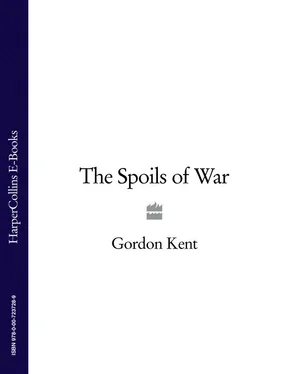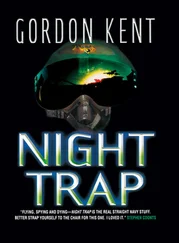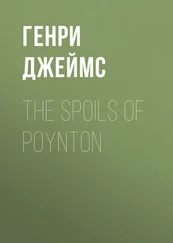“Well, well, well.”
“A hit?”
“You done good.” Dukas tapped the screen. “Spinner, Raymond L. Ha!” He was smiling. “How stuff you do does come back to bite you in the ass!”
“Shakespeare said something like that.”
“What d’you know about Shakespeare?”
“Andrew’s a freshman at Brown. A parent’s got to keep up.”
Dukas looked fleetingly troubled; perhaps he was thinking that when his yet-to-be-born child was a freshman somewhere, he’d be ready for Social Security. He jerked himself away from the thought. “This guy—” Dukas tapped the screen again. “Raymond Spinner. I busted this guy for passing internal fleet information to his daddy, who swings in Washington. I persuaded him to cash out. And now he’s washed up on a beach in DoD—I think Daddy’s been at work again—and he thinks he’s going to fuck me over.” Dukas grunted. “Well, well, well.”
“You’re going to do something ugly.”
“Surely not.” He smiled at Triffler. “I’m going to be a good little bureaucrat.” He began to draft an email as a reply that piggy-backed on the one he had received:
From: Michael Dukas, Special Agent in Charge, Naval Criminal Investigative Service, Naples, Italy
To: Deputy Assistant Secretary of Defense, Department of Defense, Office of Information Analysis
Subject: Your request.
Message: Per 1347.5 Sec. 11, please locate your place in chain of command and justify referenced request. Recommend GS-10 Raymond Spinner expedite.
“What’s 1347.5?”
“How the hell should I know?”
“Light,” Alan said. He could see that a nude body was lying there and that there was shiny metal along one side of him, but he couldn’t see enough. Miriam was burrowing in her handbag and she came up with one that Alan recognized as of a type advertised in the pricier gun magazines—high-intensity, small size, big price.
The body was lying on a rolling litter, like a low gurney; it supplied the metallic reflection he’d seen. The damage to the man was sickening.
“Beaten,” Miriam said.
“Cause of death?”
“I’m not a doctor.” She was shining her very bright light on the eyes and prying one of them open; then she focused on the mashed lips, which she parted with a ballpoint pen so she could study the teeth. “Really bad,” she said. She pressed on the chest, but nothing happened. “I thought maybe water.”
“Torture.”
“Mmmm.”
They worked their way down to the feet, which, like the legs, were less damaged than the head and upper body. He pointed out two round marks on the left leg. “Cigarette.”
“Your guy?” she said.
He took the ID sheet that Dukas had faxed to the embassy. Two head shots, front and profile, were in the upper right corner, the size of passport photos. Faxed, smudged, they didn’t look like the battered mess on the table. Alan read down the sheet to Distinguishing Marks and said, “Two-inch tattoo of fouled anchor, left forearm.” He thought he had to explain it to her. “A fouled anchor is an anchor with a rope twisted around it, sort of. Two inches is about—five centimeters.”
She was holding the dead left arm. “Yes.”
“Surgical scar, right abdomen, appendectomy. About—four centimeters.”
“Yes, okay.”
“Three moles, prominent, smooth, dark brown, left side of chest, triangle pattern about—seven centimeters.”
She hung her head over the dead man’s chest, her light bright on his waxy skin, turned her head toward Alan and said, “Now aren’t you glad you came?” She dug into the big handbag, which she dropped on the gurney, shining the light into it, and pulled out a plastic phial and then a sterile packet and then a box big enough to have held half a dozen cigars. She took a swab from the packet and swabbed the inside of the dead man’s mouth and put it into the phial, then clipped hair from his head, put it into another phial, and unpacked a small ink pad. Alan figured she had an entire evidence kit in there.
“Won’t your forensics people do that?” he said.
“Mossad, darling, Mossad.”
Alan switched his light off and straightened, his back sore from bending. “How did somebody get a body in here?” Alan asked Mosher.
“Many people work here over the many years. Keys—” He made walking motions with his fingers.
“But you didn’t know the body was here?”
“Me?”
Oddly, Alan believed him. Mosher was a schlemiel, and probably a nebbish, too, and he knew he was being used, and he was scared.
“Do you—does anybody live on the facility?”
Mosher shook his head as if the idea disgusted him. “Where would they live? Some buildings don’t even have water. I live in Tel Aviv. Most of my people are IDF reservists. It’s nice duty—you go home to mama’s cooking.”
“You have a duty officer at night.”
“A petty officer.”
“Who checks everything.”
“Yes, yes—”
“And guards on the perimeter?”
He shrugged. “Kids. Good kids. But—”
“Who else has space on the facility? I saw a man back there—”
Mosher backed away, his hands up to ward off threat. He shook his head and bolted out the door.
Alan found Miriam outside, standing on the top step, a cell phone at her ear and a roll of crime scene tape in her left hand. She gestured at him to help; he took the tape and together they taped off the entrances to the stairs and the steel door. Miriam went right on talking to somebody in Hebrew.
“I called it in to Homicide,” she said. “They’re sending a team. Let them fight with Mossad.” She was lighting a cigarette. “How come you don’t smoke?”
“My wife persuaded me my kids deserve better.”
“Nice wife?”
“Wonderful.”
She held the cigarette at her side, away from him. “I had a nice husband for a while. Then I scared him off. Two kids. One’s a wifey in London; one’s a doctor in bet-Elan.” She blew out smoke. “Actually I threw my husband out. He started playing around.” She looked aside at him. “I’m embarrassing you.”
“I don’t embarrass that easy.”
She patted his arm. “We’ll get along.” She got on the phone again.
Alan stood on a little hill, looking down at the entrance to the bunker, thinking of the dead man inside. Tortured, beaten to death. It turned his stomach. It always did.
He and a master chief named Fidelio, whom everybody called Fidel, had been in northern Afghanistan before the bombing began. He had had half a million dollars in US cash, but he was there because Fidel spoke Farsi and Pashto and they needed an officer to go with him. They were in the western part of the Alliance territory buying help for the US attack that was yet to come. As it happened, the warlord they had been sent to spoke Turkmen, so they needed somebody local to translate the Turkmen into Farsi so that Fidel could translate it into English for Alan. They were sitting in a stone house in a room hung with carpets and carpeted under them, sitting cross-legged, tea and food in front of them. Outside, it sounded as if somebody was beating a rug, except that there were screams. Alan had put a quarter of a million US in a pile next to the food, and the general said, “How many men will the US send?” The screaming went on, and the thumping, and Alan frowned at Fidel and then at the sound, and the general muttered something and an aide left the room and the thumping and the screaming stopped. Then they made the deal. The general and his army would fight for the US, and he expected weapons and trucks and petrol and some heavy weapons. Alan said through the chain of interpreters that the quarter-million dollars was for those things, and the general sighed and said back through the chain that his expenses were very high. Most of his money, Alan thought, came from Iran; his men had Iranian weapons and Iranian uniforms, and there were men wandering around speaking Farsi, according to Fidel, who were probably Iranian intel. Still, none of that mattered; his job right then was to get the general to say yes, and they’d worry about Iran later. The general had said yes; Alan said yes. The general and Alan and Fidel all shook hands and smiled a lot and the pile of money disappeared, and when they went outside, there was a bloody body on the ground, and a frightened man was being made to look at it and some soldiers started to shout at him and push him around. He was next.
Читать дальше












